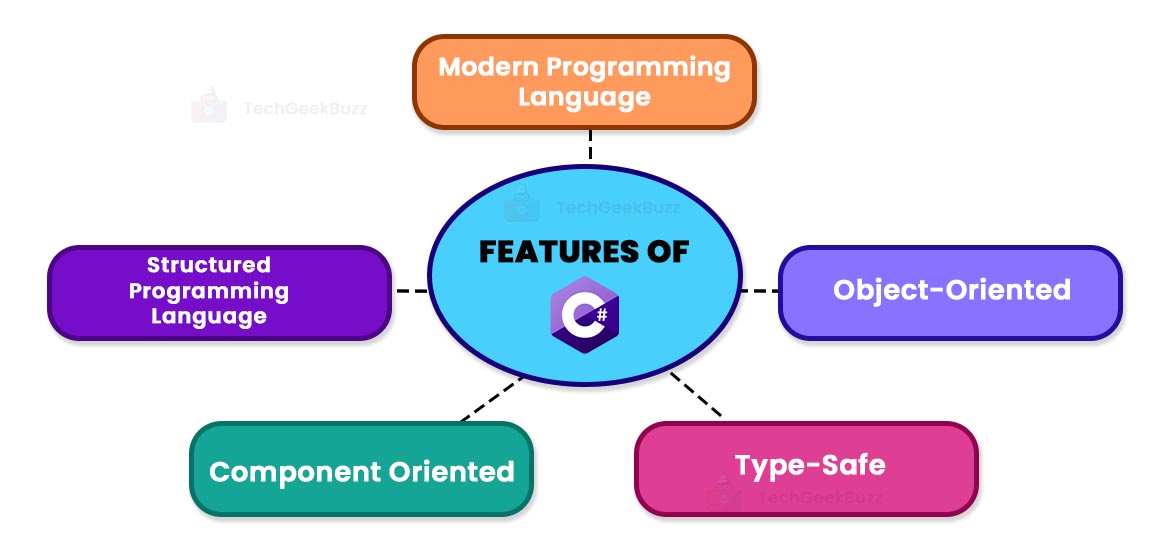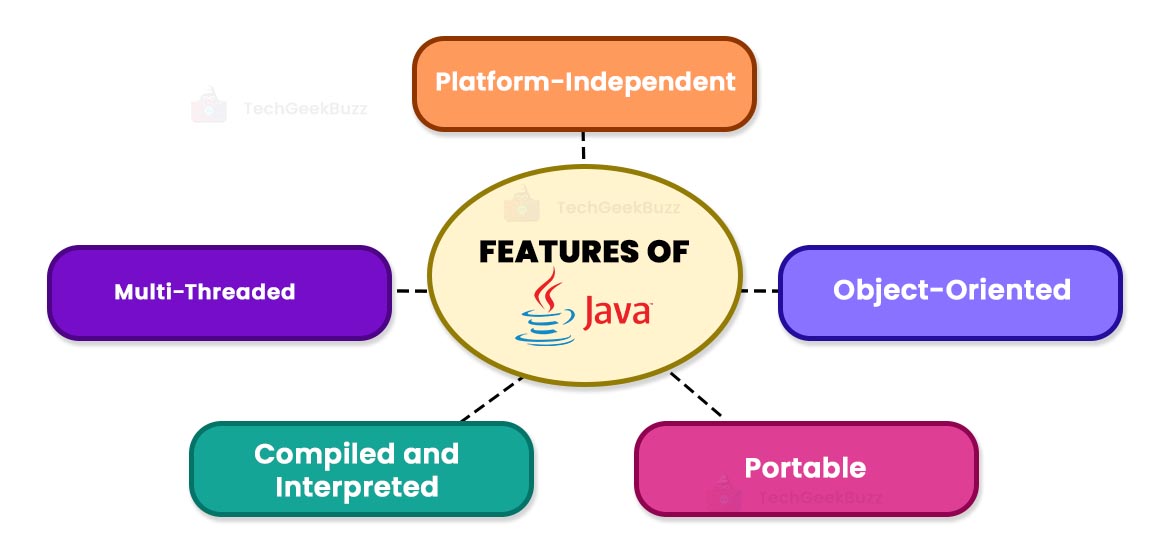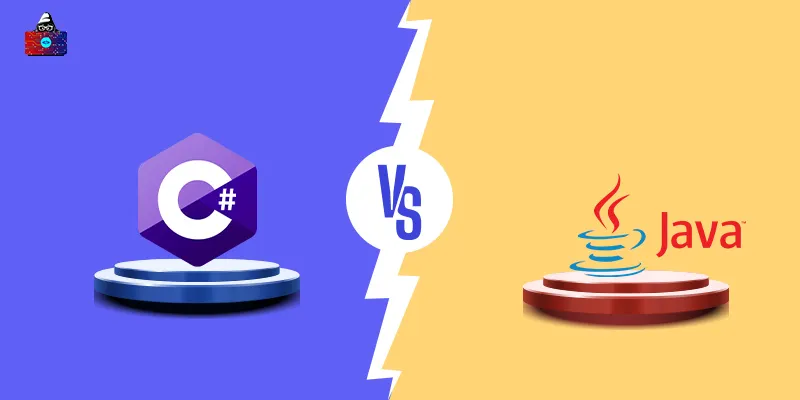C# and Java are both object-oriented and general-purpose programming languages, and they have many features in common. These common features are as follows:
- C# and Java are the descendants of C and C++.
- They both are syntactically similar in many areas.
- Both provide support for automatic garbage collection.
Many times, the similarities between C# and Java make it difficult for developers to choose one programming language over the other. However, C# and Java have a lot of differences too, and one may consider them if they want to make a sound choice.
This article will walk you through the major differences between Java and C# programming languages. In addition to it, this article intends to provide a brief overview of C# and Java languages, along with their history, features, advantages, and disadvantages.
So without further ado, let us begin!
What is C#?
C# is a general-purpose, type-safe programming language and is pronounced as C Sharp. It follows multiple programming paradigms, such as object-oriented, structured, imperative, event-driven, functional, task-driven, and declarative. It enables developers to create various applications that run on the .NET framework.
Having its origin from the family of C languages, C# is quite familiar to C, C++, Java, and JavaScript programming languages. The ECMA standard has specified certain design goals for C#, and they are as follows:
- It is intended to be a simple, object-oriented, and general-purpose programming language.
- C# and its implementations should support software engineering principles, including type checking, automatic garbage collection, and array bounds checking. In addition, software developed in C# should be robust and durable.
- This language should be used to develop software components that deploy in distributed environments.
- It should support internationalization.
- It can be used to develop hosts and embedded applications.
History
During the development of the .NET framework, developers used a managed code compiler system called Simple Managed C (SMC) for writing class libraries. Later in 1999, Anders Hejlsberg at Microsoft started designing a programming language with his team and named it Cool, which stood for C-like Object-Oriented Language. But Microsoft thought that the name ‘Cool’ was not good for trademark reasons.
While the .NET framework was announced publicly at the July 2000 Professional Developers Conference, Microsoft renamed it to C#. Later, many personalities, like James Gosling, the creator of the Java language, Klaus Kreft, and Angelika Langer, the authors of C++ stream books, commented that Java and C# are identical and C# has borrowed many features from Java. But Hejlsberg stated that C# is not a clone of Java, and its design is identical to C++.
In November 2005, Hejlsberg released version 2.0 of C#, and then C# and Java evolved on two different paths, becoming two different programming languages. The major difference between these two was the addition of generics with different implementations. C# used reification to provide generic objects.
After that, multiple versions of C#, such as 3.0, 4.0, 5.0, 6.0, 7.0, 8.0, 9.0, and 10,0 released, and the latest and most stable version of C# is 10.0.
Features of C#

C# offers various features that make it possible for developers to build secure and robust applications. Some of those features are as follows:
- Modern Programming Language: C# is a modern programming language and is based on state-of-art programming trends. It is a powerful language for building robust, scalable, and interoperable applications, XML web services, and dynamic web pages.
- Object-Oriented: C# is a programming language that follows the concepts of object-oriented programming , such as data encapsulation, inheritance, polymorphism, and inheritance. In addition, C# has introduced structs that allow primitive types to become objects.
- Type-Safe: C# is a type-safe language, meaning that we cannot perform unsafe typecasts, such as converting double to boolean. Moreover, C# initializes value types to zero and reference types, such as classes and objects, to NULL.
- Component Oriented: C# is a component-oriented language that allows developers to create more robust and scalable applications by combining existing and new components.
- Structured Programming Language: You can split a large and complex C# program into small, manageable code pieces. These small pieces are generally called functions, modules, or sub-programs.
Advantages of C#
Here are some significant upsides of C#:
- C# is a simple programming language since it follows a structured approach.
- It facilitates quick and less error-prone development than C++ and Java.
- It provides excellent lambda and generics support.
- C# has an automatic garbage collector that cleans up objects once they are no longer used. Therefore, an automatic garbage collector eliminates the need to track everything manually.
- Since C# is developed and maintained by Microsoft, it has thorough documentation, including interactive tutorials and video explanations.
- C# has a low learning curve since its syntax is identical to C++ and Java.
Disadvantages of C#
Some of the main downsides of C# are:
- C# is less flexible than other object-oriented programming languages since it primarily depends on the .NET framework.
- It has a poor x-platform GUI.
- It supports pointers to a limited extent.
When to Choose C#?
C# is a versatile language that lets developers build almost anything. But it is very robust at building Windows desktop applications and games. In addition, you can also use C# to develop web and mobile applications. It is also an ideal language for developing backend services, Azure cloud applications and services, and game engines.
C# Program
Let us write a simple C# program for printing a single statement.
using System;
namespace WelcomeTGB
{
class TGB
{
static void Main(string[] args)
{
Console.WriteLine("Welcome to TechGeekBuzz!");
Console.ReadKey();
}
}
}
Output:
Welcome to TechGeekBuzz!
What is Java?
Java is a high-level, object-oriented, and class-based programming language. It follows multiple programming principles, including object-oriented, functional, imperative, concurrent, and generic.
In addition, it is a general-purpose programming language that works on the WORA principle. WORA stands for Write Once, Run Anywhere. It implies that Java code compiled on one machine can run on all other Java-enabled machines without requiring recompiling it. Java code is converted into bytecode and not directly into the machine code. Therefore, that bytecode file can run on any system with Java Virtual Machine (JVM).
The Java language was developed based on the following five principles:
- It must be object-oriented, simple, and familiar.
- It must be portable and architecture-neutral.
- The language must be robust and secure.
- It must be threaded, dynamic, and interpreted.
- It must execute with high performance.
History
James Gosling at Sun Microsystems developed Java and released it in 1995 as the core component of Sun Microsystems’ Java platform. Java was initially called Oak, which was named after the oak tree outside Jame Gosling’s office. Later, it was called Green and was finally renamed Java. It got its name from Java coffee, a type of coffee from Indonesia.
Sun Microsystems made the first implementation of Java public as Java 1.0 in 1996. In a very short time, Java became an immensely popular language due to its popular features, such as WORA and no-cost run-times on popular platforms.
Later, the company released multiple versions of Java, such as Java 1.1, 1.2, 1.3, 1.4, 5.0, 6, 7, 8, 9, 10, 11, 12, 13, 14, 15, 16, and 17. The current and stable version of Java is Java 17.
Features of Java

Some salient features of Java are:
- Platform-Independent: Java is platform-independent because once compiled, Java code can run on any other system with Java Virtual Machine (JVM). You do not have to recompile the compiled Java code to run it on different machines.
- Object-Oriented: Java is an object-oriented programming language, i.e., everything in Java is in the form of classes and objects.
- Portable: Java is portable because of its WORA and platform-independent features. Developers have to write and compile Java code only once and run it on different platforms yet yield the same result.
- Compiled and Interpreted: Java is both a compiled and interpreted language. Initially, Java code is compiled into bytecode, and then that bytecode runs on Java Virtual Machine (JVM), which is a software-based interpreter.
- Multi-Threaded: Java supports multithreading. A thread is the smallest sequence of programmed instructions or a subprocess of a running program that can be executed independently. When multiple threads run parallel, it is referred to as multithreading.
Advantages of Java
The following are the benefits of Java:
- Java is a simple and easy-to-understand programming language.
- It is less complex than C and C++ languages since it does not support many complicated features of C and C++, such as operator overloading, storage classes, and explicit pointers.
- Since Java does not use explicit pointers, it reduces security threats and risks. In addition, a Security Manager in Java enables us to define access rules for Java classes.
- It has an automatic garbage collector that removes unused objects.
- Since Java is a popular and widely used language, it has detailed and thorough documentation.
- Java employs an efficient memory allocation strategy that divides the memory into two parts, namely the Heap area and the Stack area.
Disadvantages of Java
Some popular drawbacks of Java are:
- Java is comparatively slower than C and C++ since Java code is first compiled into bytecode and then bytecode into machine code.
- It has high memory and processing requirements, which, in turn, increases hardware costs.
- It does not provide support for low-level programming constructs, like pointers.
When to Choose Java?
Developers mostly prefer Java as a server-side language for back-end development . Since Java is a general-purpose language, you can use it to build various applications, including mobile, desktop, distributed, cloud-based, gaming, and IoT applications.
Java Program
Let us write one simple Java program for printing a single statement.
class TGB
{
public static void main(String args[])
{
System.out.println("Welcome to TechGeekBuzz!");
}
}
Output:
Welcome to TechGeekBuzz!
C# vs Java - Head-to-Head Comparison
The following table draws all the key differences between C# and Java:
| Parameters | C# | Java |
| Definition | C# is a general-purpose, type-safe programming language designed by Anders Hejlsberg. | Java is a general-purpose, class-based, and secure programming language developed by James Gosling. |
| Runtime Environment | Programs developed using C# run on the Common Language Runtime (CLR). | The Java Runtime Environment (JRE) provides all class libraries and resources required to run Java programs. |
| Structures and Unions | C# supports structures and unions. | Java does not support structure and unions. |
| Pointers | C# supports pointers, and you can use them in unsafe mode. | Java does not support pointers. |
| Conditional compilation | This language supports conditional compilation. | This language does not support conditional compilation. |
| Checks and Unchecked Exceptions | C# only supports checked exceptions. | Java supports both checked and unchecked exceptions. |
| Goto statement | It does not support the goto statement. | It supports the goto statement. |
| Operator Overloading | C# supports operator overloading for multiple operators. | Java does not support operator overloading. |
| Array | In C#, arrays are the specialization of a system. | In Java, arrays are the specialization of an object. |
| Public class | A C# program can have multiple public classes. | A Java program has a single public class; else, it displays a compilation error. |
C# vs Java: Which One to Choose?
Now that we know the key differences between C# and Java, it is time to decide which one to choose. C# is a versatile and code-oriented programming language ideal for developing Windows applications, video games, web applications, enterprise software, and cloud-based applications.
Java is well-known for its security and high-level concurrency; hence, it is widely used to develop governmental and scientific applications. Moreover, it is used for building web-based applications, Android applications, data centers, IoT applications , and distributed applications. As a result, depending on the nature of your project, you can select either Java or C#.
Conclusion
C# and Java are both popular languages that came into existence in the 90s with a few similarities and many differences. Java is a popular programming language known for its security, concurrency, and portability features.
On the flip side, C# encourages code reuse and provides many built-in functions to help you code better. Choosing Java would be a great move for developing web, Android, and scientific applications, whereas C# is ideal for developing Windows applications and video games.
We hope this article has helped you learn the differences between C# and Java. Also, you can post your queries or suggestions in the comments section below.
People are also reading:





Leave a Comment on this Post